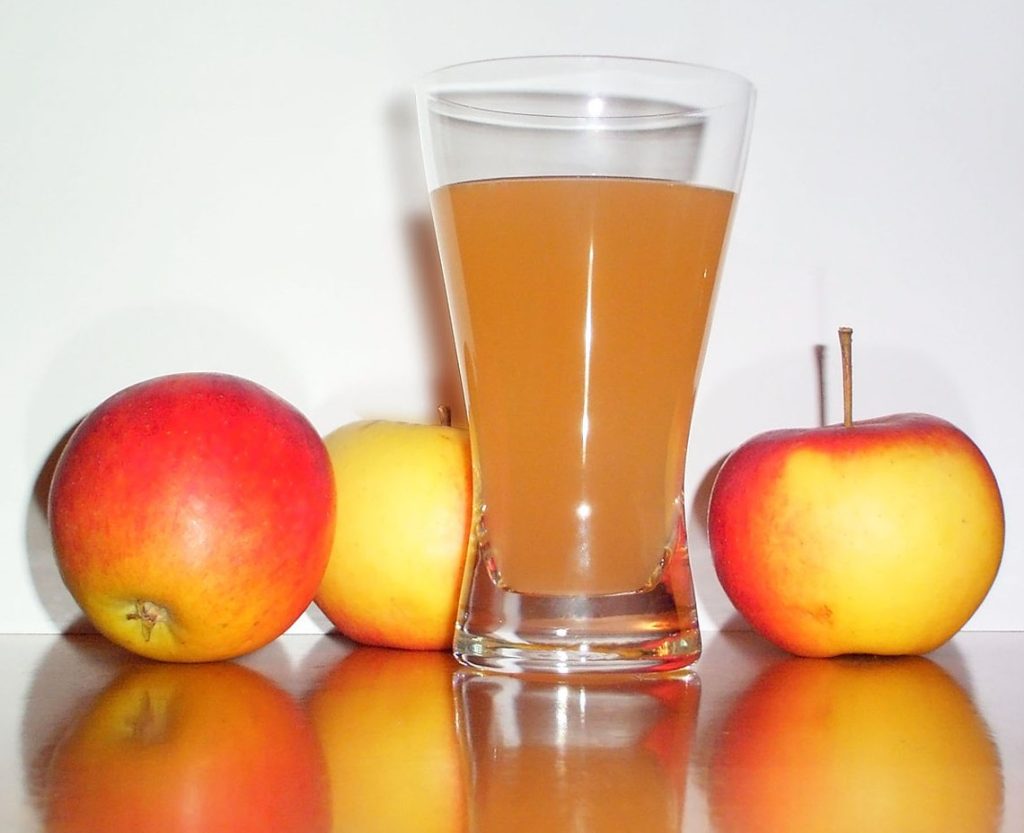This question is an interesting little mystery to get your brain thinking. You might be wondering, “Does apple juice have to be refrigerated?” The answer is yes, but it’s best that you think about this question yourself before reading the write up on why.
If you’ve ever been at a party and offered a chilled glass of apple juice as refreshment after a plate of hors d’oeuvres, then you know what I’m talking about.

What Is Apple Juice?
Apple juice is a bottled, flavored juice that contains a blend of apple juice, sugar and medicinal flavoring such as cinnamon, cloves or ginger. The mixture is made by straining apples to extract the juice, adding water and some sweeteners.
It’s then put into a bottle where it sits under pressure until it’s ready to drink. In most cases, apple juice comes in those small glass bottles with the colorful straws that are either ideal for travel or use as decorative items.
Is Apple Juice Rot?
Apple juice can spoil or “rot” over time if it is not stored properly or if it is past its expiration date. Like any other food or beverage, apple juice can be subject to spoilage due to bacterial or fungal growth, oxidation, or other factors that can affect its quality and safety.
When apple juice spoils, it may become cloudy, fizzy, or develop an off taste or smell. In some cases, mold may grow on the surface of the juice or sediment may settle at the bottom of the container.
To prevent apple juice from spoiling, it should be refrigerated after opening and consumed before its expiration date. It’s also a good idea to check the juice for any signs of spoilage before drinking it. If you’re unsure whether your apple juice has gone bad, it’s best to err on the side of caution and discard it.
Is Apple Juice Safe To Keep In Room Temperature?
No. It’s a sealed bottle of apple juice, so it should be stored at room temperature or in the fridge.
It’s best to store apple juice in the fridge. That way, the ingredients are protected from harmful bacteria, mold and mildew. You will want to avoid the freezer where it can get too cold to drink or freeze and become completely unusable for a long period of time.
When Do You Need To Throw Out Apple Juice?
If you’re drinking apple juice straight from the bottle and it’s been opened, you’ll have to throw it out after a certain period of time. If you’ve had the juice in the fridge, you’ll need to throw it out sooner because of spoilage.
In most cases, the expiration date is printed on the label and will tell you when the apple juice is good for. Most juice expires in one week to two weeks.
Does Apple Juice Have To Be Refrigerated?
Yes! It’s best to store it in the fridge for maximum freshness and safety.
When it comes to keeping apple juice in a room temperature, it’s better that you don’t. When you open an apple juice bottle, the main ingredient of apples can easily become spoiled. The cooler temperatures are great for drinks, but not for juices.
Can Apple Juice Be Frozen?
Yes, apple juice can be frozen. Freezing apple juice is a great way to extend its shelf life and preserve its freshness. When freezing apple juice, make sure to leave some room at the top of the container or bag, as the liquid will expand as it freezes.
To freeze apple juice, first, pour the juice into a freezer-safe container or bag. Seal the container or bag tightly, leaving some room at the top, and place it in the freezer. Frozen apple juice can be stored in the freezer for up to 8-12 months.
When you’re ready to use the frozen apple juice, simply thaw it in the refrigerator or at room temperature. Give it a good shake or stir before using to make sure that it’s well mixed. You can also use frozen apple juice to make popsicles or slushies.
Conclusion
As you can see, it’s best that you keep the apple juice refrigerated. That way, it stays fresh tasting and won’t taste bad when you take a sip.
Apple juice should really stay in the fridge. That way, it stays fresh tasting and helps protect the juices from harmful bacteria and mold.
